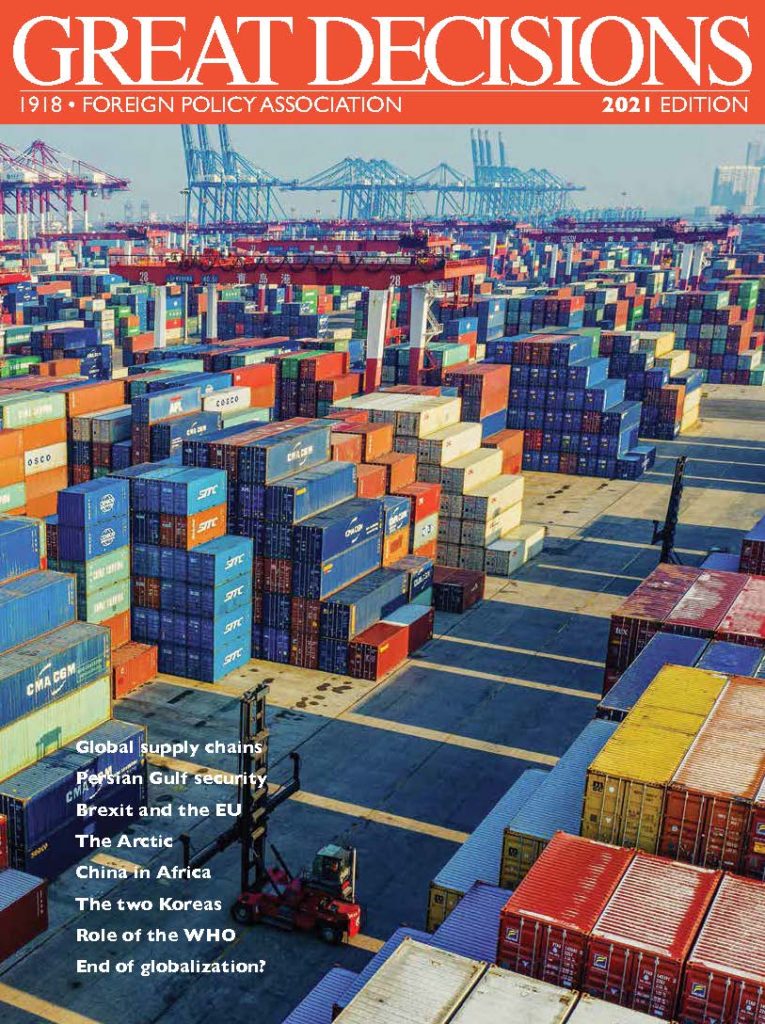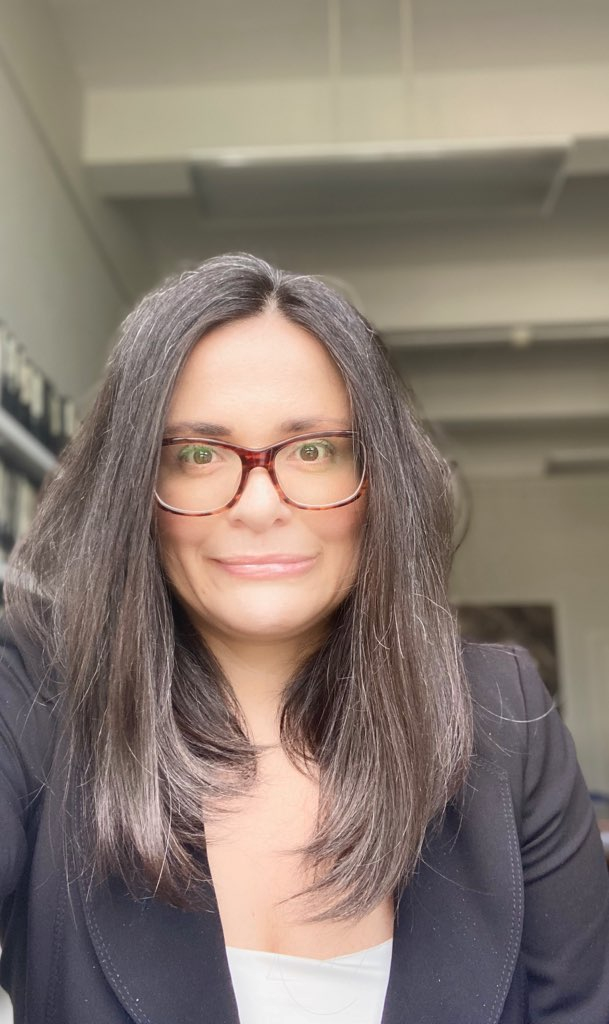Foreign Policy Lecture Series
April 2 (rescheduled to May 7)
and April 9, 16, 23 and 30
9:30 AM – Noon
Events are ZOOM webinars; login will be sent prior to each event.

Ticket Prices:
Payment is required at the time of registration; no checks or cash.
- 5CLIR members: $12 per individual discussion or $40 for the full series
- Public admission: $15 per individual discussion or $50 for the full series
Spring 2021 Topics:
CLIMATE CHANGE AND THE GLOBAL ORDER
April 2, 2021 (rescheduled to May 7, 2021)
Climate change has become one of the defining issues of our time. As much of the world bands together to come up with a plan, the U.S. remains the notable holdout. What is the rest of the world doing to combat climate change? What impact will the effects of climate change have on global geopolitics?

Peter M. Haas is a professor of political science at University of Massachusetts Amherst, where he has taught since 1987. He received a Ph.D. in 1986 from MIT. He has published extensively on international environmental politics and global governance, and the interplay of science and international institutions at the international level.
Dr. Haas is the author or co-author of many books, book chapters, and peer-reviewed articles with his work published in seven languages. Recently, his work has focused on networked governance and the role of science in international environmental regimes. Dr. Haas has consulted for the Commission on Global Governance, the United Nations Environment Programme; the governments of the United States, France, Switzerland, and Portugal, and the United States National Academy of Sciences. He has received grants from the National Science Foundation, German Marshall Fund, Rockefeller Brothers Fund, the Institute for the Study of World Politics, and the Gallatin Foundation.
Professor Haas is the recipient of the 2014 Distinguished Scholar Award of the International Studies Association Environmental Studies Section.
GLOBAL SUPPLY CHAINS AND NATIONAL SECURITY
April 9, 2021
The shutdown of global supply chains due to the Covid-19 pandemic brought to the fore an issue with the high level of global economic interdependence: what happens when one country is the main source for an item, say face masks, and then can no longer supply the item? Countries suddenly unable to meet the demand for certain supplies are faced with growing calls for economic nationalism. What are some of the lasting effects that the pandemic could have on global supply chains and trade? How would this affect national security?

Eleonora Mattiacci is an Assistant Professor of Political Science at Amherst College. She researches how actors we traditionally consider weak (i.e., smaller states or rebel groups) can leverage technological advances ranging from nuclear weapons to social media to prevail against actors that are conventionally strong. She focuses in particular on the study of conflict, both within and between countries. Her research delves into how temporal dynamics shape relations between political actors in the international arena, and leverage evidence-based accounts of state and non-state actors’ behavior as it unfolds over time.
Her research has been published in multiple, peer-reviewed outlets, including International Interactions, International Studies Quarterly, Journal of Peace Research, British Journal of Political Science, and Perspectives on Politics. Her commentary has appeared on New Security Beat and The Conversation. She run the IRLab @Amherst College. She tweets at @eleomatt
ARTIFICIAL INTELLIGENCE AND DATA
April 16, 2021
Policymakers in many countries are developing plans and funding research in artificial intelligence (AI). Global growth is slowing, and not surprisingly, many policymakers hope that AI will provide a magic solution. The EU, Brazil, and other Western countries have adopted regulations that grant users greater control over their data and require that firms using AI be transparent about how they use it. Will the U.S. follow suit?

David Jensen is a Professor of Computer Science at University of Massachusetts Amherst. He directs the Knowledge Discovery Laboratory and currently serves as the Director of the Computational Social Science Institute, an interdisciplinary effort at UMass to study social phenomena using computational tools and concepts.
He received a Ph.D. from Washington University in St. Louis in 1992, and from 1991 to 1995 he served as an analyst with the Office of Technology Assessment, an agency of the United States Congress. Professor Jensen’s research focuses on machine learning and artificial intelligence for analyzing large social, technological, and computational systems. His research is supported by the National Science Foundation and the Defense Advanced Research Projects Agency (DARPA). He has served on the Board of Directors of the ACM Special Interest Group on Knowledge Discovery and Data Mining (2005-2013), the Defense Science Study Group (2006-2007), and DARPA’s Information Science and Technology Group (2007-2012).
Professor Jensen received the Outstanding Teacher Award from the UMass College of Natural Sciences in 2011.
BREXIT AND THE EUROPEAN UNION
April 23, 2021
With the “Brexit transition period” coming to an end in 2020, the United Kingdom will formally leave the European Union at the start of 2021. With negotiations between the two entities continuing to stall, what does the future of Europe and the UK look like? Will the UK survive a possible Scottish vote to leave? Who will step up and take command of Europe now that Angela Merkel is out of the spotlight?

Christopher Mitchell is Assistant Professor of International Relations and Politics, Mount Holyoke College. His research explores the politics of finance and financial crises, especially in the European Union. arch explores efforts to centralize financial regulation in the European Union and the effects of Brexit on British financial markets.
He has previously written on the likely economic costs of Brexit and the politics of bank bailouts in the European Union (esp. Britain and Germany) and the United States in the 2007-2009 crisis. He has worked for the US International Trade Commission, the United Nations, the World Bank, and the US Congress. He teaches courses on the European Union, international political economy, the politics of international finance, and the role of trade in US foreign policy.
China’s Role in Africa
April 30, 2021
The Covid-19 crisis has put a massive strain on what was growing a positive economic and political relationship between China and the continent of Africa. As Chinese President Xi Jinping’s centerpiece “Belt and Road initiative” continues to expand Chinese power, the response to the spread of Covid-19, as well as the African government’s growing debt to China, has seen pushback. What are some of the growing economic and political issues between China and Africa? What are the layers of macro historical connections shaping China-Africa encounters today?

Helen F. Siu is a Professor of Anthropology and former chair of the Council on East Asian Studies at Yale University. She has conducted decades of fieldwork in Southern China, exploring agrarian change and the nature of the socialist state. Lately, she explores rural-urban interface in China, inter-Asian connections, China-Africa encounters, popular culture and new political space in Hong Kong.
She has served funding and research assessment committees in the United States, Europe, and Asia, and is the founding director of the Hong Kong Institute for the Humanities and Social Sciences at the University of Hong Kong. Her recent publications are
- Asia Inside Out (3 volumes, Harvard U Press 2015, 2019),
- Tracing China: A Forty-year Ethnographic Journey (HKU Press 2016),
- “China-Africa Encounters: Historical Legacies and Contemporary Realities,” Annual Review of Anthropology 46 (Nov 2017), and
- “Financing China’s Engagements in Africa: New State Spaces along a Variegated Landscape,” Africa 89 (4), 2019.
She is executive producer of an 83 min documentary film on a Cantopop diva and Hong Kong (Denise Ho: Becoming the Song, 2020).
